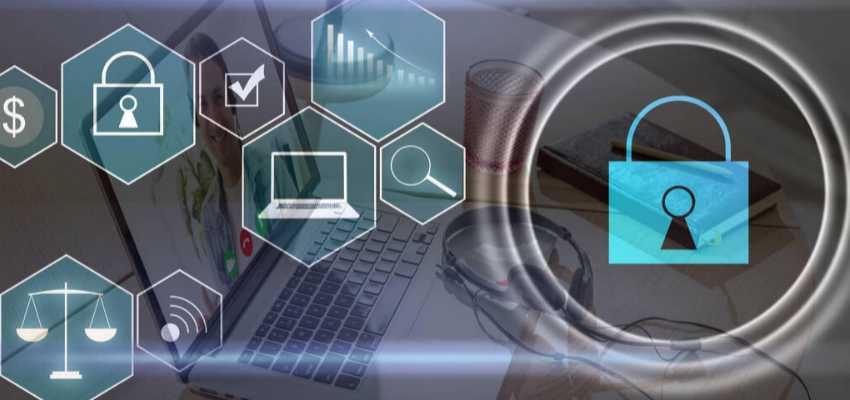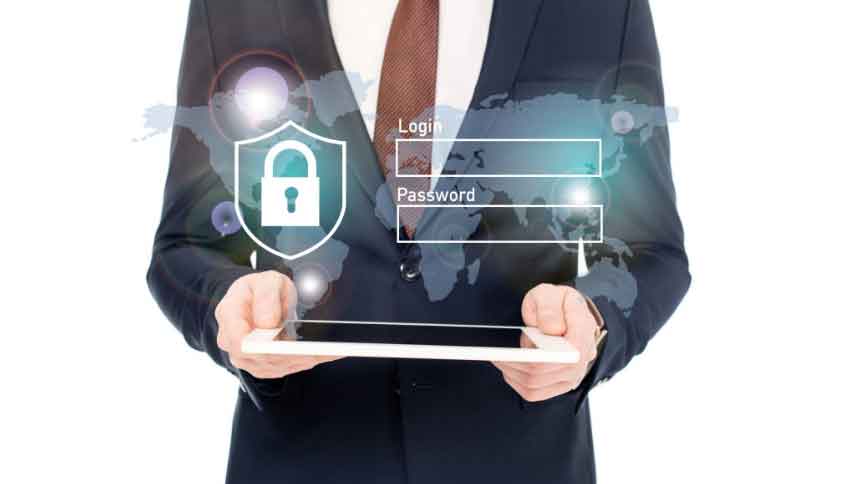Show:
How to Keep Your Business Data Safe From Hackers
As a business owner, you have a lot of important data that you need to keep safe and secure.
This includes customer information, financial records, and other sensitive data. If this data were to fall into the wrong hands, it could be used to harm your business or customers.

That’s why it’s important to take steps to protect your data from hackers. Here are some tips to help you keep your business data safe:
Use Strong Passwords
One of the most important things you can do to protect your data is to use strong passwords.
Hackers can easily guess weak passwords, so it’s important to choose passwords that are difficult to guess. You should also avoid using the same password for multiple accounts.
Having different passwords for different accounts will protect you from hackers who may have gained access to your computer or network.
If you use the same password for everything, a hacker who obtains your password will be able to get into all of your accounts. But if you have different passwords for different accounts, the hacker will only be able to access the one account that uses that particular password.
Change Your Passwords Frequently
This will help to keep your accounts more secure. It will also help protect yourself from phishing scams.
When scammers send out mass emails or texts trying to trick people into giving them their personal information, they often include links to fake websites that look very similar to the real thing.
If you enter your login credentials on one of these fake sites, the scammers will now have access to your account. But if you change your password regularly, they won’t be able to use it to get into your account even if they do have your username and password.

Use Guest Networks
Guest WiFi networks are separate, isolated networks that visitors can use to access the internet without compromising the security of your internal network.
Many businesses set up guest WiFi networks in order to offer their customers and clients a convenient way to get online while still keeping their data safe.
There are a few things to keep in mind when setting up a guest WiFi network:
- Make sure to use a separate, dedicated router for your guest WiFi network. This will ensure that the traffic on your guest network does not interfere with the traffic on your internal network.
- Configure your firewall to restrict access to your internal network from your guest network. This will prevent unauthorized access to your data.
- Use a strong password for your guest WiFi network. This will help to keep your network secure.
- Enable encryption for your guest WiFi network. This will ensure that the data transmitted over the network is safe from eavesdroppers.
- Disable remote access to your router from the internet. This will prevent unauthorized access to your router settings.
- Regularly check the security of your guest WiFi network. This will help to ensure that your network is safe from attack.
You can read more about guest networks here.
Encrypt Your Data
Another way to protect your data is to encrypt it.
This means that your data will be converted into a code that can only be decrypted by someone with the proper key. This makes it much more difficult for hackers to access your data.
Encryption is, today, an important part of business security and compliance as well.
Data encryption protects your information from being accessed by unauthorized individuals and ensures that it remains private and confidential.
For the same reason, by encrypting your data you also meet certain regulatory requirements and maintain compliance with industry standards.
Here are some of the top reasons to encrypt your data:
- To protect your data from cybercriminals
Data encryption makes it much more difficult for cybercriminals to access your information. Even if they are able to obtain your data, it will be unreadable and unusable to them. This added layer of security can help prevent data breaches and protect your business from the potentially devastating consequences.
- To meet regulatory requirements
Certain industries are subject to strict regulations that require the use of data encryption. For example, the healthcare industry must comply with the Health Insurance Portability and Accountability Act (HIPAA), which requires the use of data encryption for certain types of information. By encrypting your data, you can help ensure that you are meeting all applicable regulatory requirements.
- To maintain compliance with industry standards
Many industries have developed voluntary standards for data security, such as the Payment Card Industry Data Security Standard (PCI DSS). While these standards are not mandatory, they may be required by your business partners or customers. Encrypting your data can help you maintain compliance with these standards and avoid any potential disruptions to your business.

- To protect your data in case of a security incident
If your business experiences a security incident, such as a data breach, encrypting your data can help minimize the damage. By making your data unreadable to unauthorized individuals, you can help reduce the risk of identity theft, financial fraud, and other types of damage.
- To ensure the privacy of your data
Encrypting your data can help ensure that it remains private and confidential. Even if your data is accessed by an unauthorized individual, they will not be able to read it without the proper decryption key. This can help prevent sensitive information, such as customer data or financial records, from falling into the wrong hands.
Data encryption is an important part of any security strategy. By encrypting your data, you can help protect your business from cybercriminals, meet regulatory requirements, and maintain compliance with industry standards.
Keep Your Software Up-To-Date
Another way to protect your data is to keep your software up-to-date. Hackers often exploit security vulnerabilities in outdated software. By keeping your software up-to-date, you can help close these security holes and make it more difficult for hackers to access your data.
Use a Firewall
A firewall can help protect your data by blocking unwanted traffic from reaching your network. This can be especially helpful if you receive a lot of email or other communications from unknown sources.
Educate Your Employees
Finally, it’s important to educate your employees about data security. They should know how to keep their passwords safe and how to spot suspicious activity.
By teaching your employees about data security, you can help protect your business from hackers.

 Return to Previous Page
Return to Previous Page








